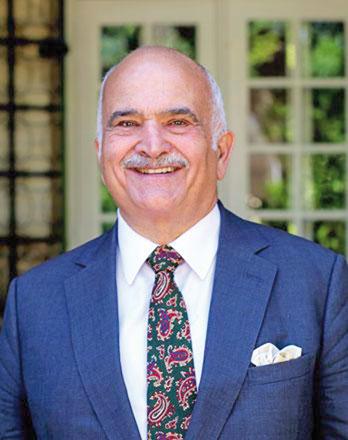- Local News
- Sun-2021-03-14 | 03:45 pm

Nayrouz News Agency :
HRH Prince Hassan, president of the Arab Thought Forum (ATF), said that stability and reconstruction in the Orient require a multilateral approach based on fathoming out regional endurance and dealing with supranational concepts, as well as enhancing broad-mindedness and comprehensive thinking via cross-border integration and harmony.
During Baghdad’s first international water conference themed "Planning and Good Governance of Water Resources”, the prince stressed the importance of the interconnection and integration of natural, human and economic resources, the Jordan News Agency, Petra, reported.
Prince Hassan also lauded Iraqi prime minister and Iraqi water minister’s efforts towards holding this event, which has opened room for reconsidering the management of the region’s available resources, as well as to discuss institutional readiness to deal with challenges tied to scarcity of resources.
He also highlighted the importance of preparation and coordination to ensure active participation in the 26th United Nations Climate Change conference, which is scheduled to be held in Scotland in November of 2021.
It’s time to foreseeing the future and cooperating in the field of transboundary waters, including the Tigris-Euphrates river basin, Nile River Basin and Orontes (Al Asi) River and the Jordan River, he said, calling for creating a regional comprehensive and just water systems towards sustainable development and stability.
On promoting food and water security in the region, the prince stressed the need for scaling up coordination related to the formulation of policies and strategies, as well as in programme implementation, amid the changing natural, economic, social and political conditions.
He added that food security and therefore water security are fundamental for maintaining human dignity.
Prince Hassan, at the end of his speech delivered via video conferencing, called for creating a regional knowledge centre, to be based on absolute information towards sharing information and everything related to the environment, water and energy, underlining the urgent need for a fact-based integrated multidisciplinary planning that transcend the borders.









